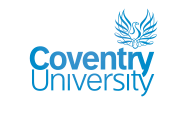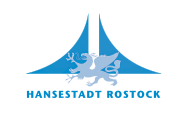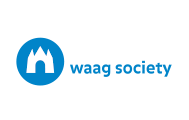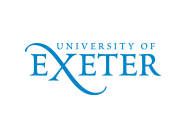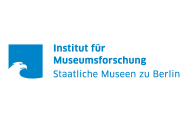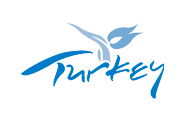

This project has received funding from the European Union’s Seventh Framework Programme for research, technological development and demonstration under grant agreement no 612789
-
Associación Española de Gestores del Patrimonio Cultural (ES)
-
Association of Italian Cultural Institutions (IT)
-
Barcelona Provincial Council (ES)
-
Civic Epistemologies Project
-
Crafts Council (UK)
-
Cyprus Univ. of Technology (CY)
-
Dédale (FR)
-
Digisam (SE)
-
Dr. Beatriz Plaza from University of the Basque Country (ES)
-
Dr. Dora Constantinidis from Monash University (AU)
-
Dr. Ellen Loots (BE)
-
Dr. Ivan Murin from Univerzita Mateja Bela (SK)
-
Dr. Luis Mauricio Venail Monroy of Apliscience (ES)
-
Dr. Omer Devrim Aksoyak of Mimar Sinan Fine Arts University (TK)
-
Estonian National Museum (EE)
-
Europeana-Space Project
-
EuroVision – Museums Exhibting Europe Project
-
Fondazione Sistema Toscana (IT)
-
Generalitat de Catalunya - Ministry of Culture (ES)
-
GLAMURS Project
-
INTK (NL)
-
ISIA Roma Design (IT)
-
Italian Ministry of the Economic Development (IT)
-
KU LEUVEN – CS Digital (BE)
-
Lehmann & Werder Museumsmedien GbR (DE)
-
MEMOLA Project
-
Midt-Troms Museum (NO)
-
Municipality of Anagni (IT)
-
Museum of Computational Tools (IT)
-
National Academic Library Information System (BG)
-
NET7 (IT)
-
Prof. Carla Fernandes from Universidade Nova de Lisboa (PT)
-
Prof. Josep Perelló (ES)
-
RMIT Europe (ES)
-
UNESCO Chair in ICT (CH)
-
Universitat Internacional de Catalunya (ES)
-
University of Bologna, Department of Architecture (IT)
KNOW OUR ASSOCIATE PARTNERS!
Around Europe, high-level institutions, experts and other projects have already decided to join us. They are:
The RICHES Network of Common Interest
Associación Española de Gestores del Patrimonio Cultural – AEGPC (ES)
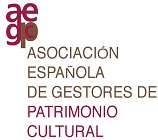 The Asociación Española de Gestores de Patrimonio Cultural / Spanish Association for the Cultural Heritage Management (AEGPC) is an independent non-profit organization that is formed by a multidisciplinar collective of professionals on the management of cultural heritage and specialists. The main objective of the AEGPC is to promote the preservation, communication of the cultural heritage, by encouraging its management based on professional criteria. These criteria imply the application of technical-scientific knowledge, as well as methods that guarantee, at the same time, the preservation of the rich historic heritage and the social enjoyment of those cultural resources. The AEGPC offers its collaboration to all those public and private entities with responsibilities in the preservation of cultural heritage.
The Asociación Española de Gestores de Patrimonio Cultural / Spanish Association for the Cultural Heritage Management (AEGPC) is an independent non-profit organization that is formed by a multidisciplinar collective of professionals on the management of cultural heritage and specialists. The main objective of the AEGPC is to promote the preservation, communication of the cultural heritage, by encouraging its management based on professional criteria. These criteria imply the application of technical-scientific knowledge, as well as methods that guarantee, at the same time, the preservation of the rich historic heritage and the social enjoyment of those cultural resources. The AEGPC offers its collaboration to all those public and private entities with responsibilities in the preservation of cultural heritage.
@aegpc
Association of Italian Cultural Institutions (IT)
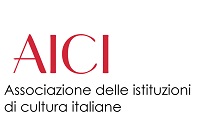 The Association of Italian Cultural Institutes holds the heritage of the enterprises, the social and political movements and all the organisations that characterised the modernisation process of Italy.
The Association of Italian Cultural Institutes holds the heritage of the enterprises, the social and political movements and all the organisations that characterised the modernisation process of Italy.
The archives of the over hundred AICI-afferent cultural institutions are relevant historical sources, preserving the complex Italian identity and telling the birth of a European political culture.
The Institutes cover all the territorial divisions and act as plural organisation combining the preservation of book and archival goods with the promotion of relevant cultural activities. They are historical sources and tools for the development of the social, political and technical dimension of the Italian and European culture; in the digitisation of cultural heritage, joined with innovative and original forms of dissemination, they identified a strategic and overriding instrument.
@aici9
Barcelona Provincial Council (ES)
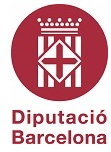 The Barcelona Provincial Council (BPC) is an intermediate local authority, which operates in the province of Barcelona. The province territorial area covers 24% of the total area of the region of Catalonia and it has 5,4 millions inhabitants (74,4% of Catalonia's total population). There are 311 heterogeneous municipalities, which range from expanded urban areas to almost 200 villages with less than 5,000 inhabitants. The Council’s objectives are to ensure the provision of municipal services and to support the work of local government, by coordinating municipal services; institutional representation; technical and economic assistance or provision of services of supramunicipal character.
The Barcelona Provincial Council (BPC) is an intermediate local authority, which operates in the province of Barcelona. The province territorial area covers 24% of the total area of the region of Catalonia and it has 5,4 millions inhabitants (74,4% of Catalonia's total population). There are 311 heterogeneous municipalities, which range from expanded urban areas to almost 200 villages with less than 5,000 inhabitants. The Council’s objectives are to ensure the provision of municipal services and to support the work of local government, by coordinating municipal services; institutional representation; technical and economic assistance or provision of services of supramunicipal character.
The BPC considers culture as a quality value of life and a key topic for human and social development. In the field of culture it has a team expert on cultural heritage that provides support for 65 municipal museums (with more than 350.000 objects) and a network of 216 municipal archives. It also manages a collection of historic and artistic elements of more than 6.000 objects.
www.diba.cat/en/web/opc/default
Civic Epistemologies Project
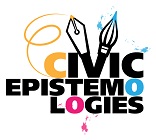 The CIVIC EPISTEMOLOGIES project is about the participation of citizens in research on cultural heritage and humanities.
The CIVIC EPISTEMOLOGIES project is about the participation of citizens in research on cultural heritage and humanities.
ICT are powerful drivers of creativity, but specific technical know-how is still generally lacking in the creative industries sectors. In addition, humanities scholarship is not yet taking full advantage of ICT to engage with wider audiences. New skills are needed to enable the cultural sector to grasp employment and commercial opportunities.
The project aims to develop and validate a Roadmap for the use of e-Infrastructures to support the participation of European citizens in research on cultural heritage and digital humanities. Critically, the Roadmap will offer support for improved social cohesion arising from the sharing of knowledge and understanding of Europe’s citizens common and individual cultures.
The Civic Epistemologies partners are committed to the values of open data, open source and open innovation.
www.facebook.com/civic.epistemologies
Crafts Council (UK)
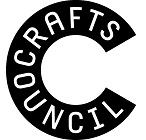 The Crafts Council's goal is to make the UK the best place to make, see, collect and learn about contemporary craft. They believe that craft plays a dynamic and vigorous role in social, economic and cultural life. The believe that the strength of craft lies in its use of traditional and contemporary techniques, ideas and materials to make extraordinary new work and that children and young people must be able to learn about craft at school and have access to excellent teaching throughout their education. The Council wants to build a strong economy and infrastructure for contemporary craft, increase and diversify the audience for contemporary craft and champion high quality contemporary craft practice nationally and internationally.
The Crafts Council's goal is to make the UK the best place to make, see, collect and learn about contemporary craft. They believe that craft plays a dynamic and vigorous role in social, economic and cultural life. The believe that the strength of craft lies in its use of traditional and contemporary techniques, ideas and materials to make extraordinary new work and that children and young people must be able to learn about craft at school and have access to excellent teaching throughout their education. The Council wants to build a strong economy and infrastructure for contemporary craft, increase and diversify the audience for contemporary craft and champion high quality contemporary craft practice nationally and internationally.
@CraftsCouncilUK
Cyprus University of Technology – CUT (CY)
 Cyprus University of Technology (CUT) was established in 2004 and enrolled its first students in 2007. It is a new, public and independent university, aspiring to develop into a modern, pioneering center for education and (applied) research in leading branches of science and technology. Over the past four years, CUT has been involved in many substantially funded research projects, helped by an advanced university infrastructure and technological equipment. These assets enable CUT to range among the strongest academic institutions on the island, boasting specialized research units directed by distinguished professionals. The Digital Heritage Lab (DHL), focusing exclusively on education, research, technology and development of documentation regarding cultural heritage, has been supported by European research funds since its creation in 2012. The DHL has established a cooperation with Cyprus’ major cultural heritage stakeholders, such as the Department of Antiquities, the Church of Cyprus and the Ministry of Education of Culture. In addition, DHL collaborates closely with several renown international research and development institutes.
Cyprus University of Technology (CUT) was established in 2004 and enrolled its first students in 2007. It is a new, public and independent university, aspiring to develop into a modern, pioneering center for education and (applied) research in leading branches of science and technology. Over the past four years, CUT has been involved in many substantially funded research projects, helped by an advanced university infrastructure and technological equipment. These assets enable CUT to range among the strongest academic institutions on the island, boasting specialized research units directed by distinguished professionals. The Digital Heritage Lab (DHL), focusing exclusively on education, research, technology and development of documentation regarding cultural heritage, has been supported by European research funds since its creation in 2012. The DHL has established a cooperation with Cyprus’ major cultural heritage stakeholders, such as the Department of Antiquities, the Church of Cyprus and the Ministry of Education of Culture. In addition, DHL collaborates closely with several renown international research and development institutes.
Dédale (FR)
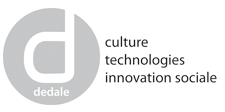 Dédale is a research and production agency dedicated to culture, technologies and social innovation. Dédale operates at a national, European and international level and is particularly interested in innovation and new uses in changing sectors such as urban planning, new media, artistic creation, cultural heritage, sustainable development and education.
Dédale is a research and production agency dedicated to culture, technologies and social innovation. Dédale operates at a national, European and international level and is particularly interested in innovation and new uses in changing sectors such as urban planning, new media, artistic creation, cultural heritage, sustainable development and education.
Dédale is firmly committed to innovative approaches through: cooperation and partnership from local to international; cross-disciplinary and cross-sectorial approaches; promoting citizens' participation; maximising new technologies potential.
Its field of activity covers production, local development, events management, research, new services development and consulting for public authorities and European institutions.
Dédale is frequently involved in European programs, including Education and Culture, Research and Innovation, International Development.
Dédale is a member of European networks, including Culture Action Europe, European Network of Living Labs and Michael Culture.
Digisam (SE)
 Digisam is a secretariat for National coordination of digitisation, digital preservation and digital access to cultural heritage, established by Swedish Government to coordinate the continued development work on digitisation issues and to coordinate the activities connected to the National Digital strategy for cultural heritage within the timeframe of 2012-2015. Digisam started its work in the autumn of 2011 and is organised as a department at the National Archives of Sweden. The main task is to promote the achievement of the objectives of the national strategy for digitisation. General guidelines, proposals for division of responsibility and how an integrated digital information management and a coordinated and cost-effective preservation should be designed are also key issues for Digisam to handle.
Digisam is a secretariat for National coordination of digitisation, digital preservation and digital access to cultural heritage, established by Swedish Government to coordinate the continued development work on digitisation issues and to coordinate the activities connected to the National Digital strategy for cultural heritage within the timeframe of 2012-2015. Digisam started its work in the autumn of 2011 and is organised as a department at the National Archives of Sweden. The main task is to promote the achievement of the objectives of the national strategy for digitisation. General guidelines, proposals for division of responsibility and how an integrated digital information management and a coordinated and cost-effective preservation should be designed are also key issues for Digisam to handle.
digisam.se/index.php/en/about-us
Dr. Dora Constantinidis from Monash University (AU)
![]() As part of a team at the Faculty of Information Technology at Monash University (Australia), Dora is currently investigating emerging technologies for the collection and preservation of Cultural Heritage. The aim is the creation of engaging teaching materials for both postgraduate students and Heritage professionals in Melbourne and at the Monash Prato campus. Through a review of technologies and case studies detailing the capture, analysis and communication of Heritage data, her team hopes to encourage stronger public access and engagement with the past. One case study will be based on the digital visualisation of the medieval Cambodian capital of Angkor conducted by Tom Chandler at Monash University.
As part of a team at the Faculty of Information Technology at Monash University (Australia), Dora is currently investigating emerging technologies for the collection and preservation of Cultural Heritage. The aim is the creation of engaging teaching materials for both postgraduate students and Heritage professionals in Melbourne and at the Monash Prato campus. Through a review of technologies and case studies detailing the capture, analysis and communication of Heritage data, her team hopes to encourage stronger public access and engagement with the past. One case study will be based on the digital visualisation of the medieval Cambodian capital of Angkor conducted by Tom Chandler at Monash University.
Dora previously worked as an archaeologist in the Middle East and the Aegean and turned to technologies such as GIS to provide another perspective on the interpretation of remains. More recently she has started to explore the opportunities and challenges for crowdsourcing cultural heritage presenting some initial insights at the Melbourne Museum.
Dr. Luis Mauricio Venail Monroy of Apliscience (ES)
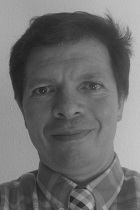 Luis Mauricio works as a consultant identifying strategies and economic, social, cultural and technological agents that act as catalysts to facilitate the design, development and integration of “reverse prospective”. He also works as conceptor developing projects, studies and businesses centred on innovation, creativity and cultural heritage.
Luis Mauricio works as a consultant identifying strategies and economic, social, cultural and technological agents that act as catalysts to facilitate the design, development and integration of “reverse prospective”. He also works as conceptor developing projects, studies and businesses centred on innovation, creativity and cultural heritage.
His company, Apliscience, specialises in IT solutions and knowledge management in every sector.
Luis Mauricio Venail Monroy has MA & MS in Economy and Management; he is Researcher and Consultant in strategy, innovation and knowledge catalysts.
EuroVision – Museums Exhibting Europe Project
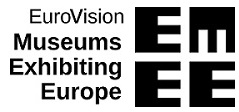 The "EuroVision – Museums Exhibiting Europe" (EMEE) project explores an innovative interdisciplinary approach for national and regional museums to re-interpret their objects in a broader context of European and transnational history. The necessary theoretical and practical framework is developed, put into practice and evaluated by an international, trans-sectoral network bringing together the creative excellence of museums and cultural workers in a project based on the scientific expertise of history didactics in mediating culture. The project, which runs for four years (2012-2016) and is funded by the Culture Programme of the European Union, was initiated by the Chair of History Didactics of Augsburg University. It is implemented by eight interdisciplinary project partners from seven European countries. The aim of the project is to advance the modernization of museums by re-interpreting museum objects and topics from a trans-regional European perspective as well as by innovative mediating approaches. Thereby, especially national and regional museums shall be encouraged to try out new ideas and concepts through which a timely orientation of the institution "museum" in today’s intercultural, heterogeneous society can be furthered.
The "EuroVision – Museums Exhibiting Europe" (EMEE) project explores an innovative interdisciplinary approach for national and regional museums to re-interpret their objects in a broader context of European and transnational history. The necessary theoretical and practical framework is developed, put into practice and evaluated by an international, trans-sectoral network bringing together the creative excellence of museums and cultural workers in a project based on the scientific expertise of history didactics in mediating culture. The project, which runs for four years (2012-2016) and is funded by the Culture Programme of the European Union, was initiated by the Chair of History Didactics of Augsburg University. It is implemented by eight interdisciplinary project partners from seven European countries. The aim of the project is to advance the modernization of museums by re-interpreting museum objects and topics from a trans-regional European perspective as well as by innovative mediating approaches. Thereby, especially national and regional museums shall be encouraged to try out new ideas and concepts through which a timely orientation of the institution "museum" in today’s intercultural, heterogeneous society can be furthered.
www.museums-exhibiting-europe.eu
www.emee-young-scenographers-contest.eu
#EMEEurovision
Europeana-Space Project
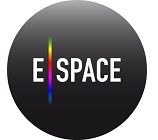 Europeana Space aims to increase and enhance the creative industries’ use of digital cultural content and Europeana by delivering a range of resources to support their engagement.
Europeana Space aims to increase and enhance the creative industries’ use of digital cultural content and Europeana by delivering a range of resources to support their engagement.
The use of content is still limited by factors including the issue of IPR status and the need for robust business models that demonstrate the potential for exploitation of available content.
In addressing these problems, Europeana Space brings together high-level expertise from the European creative industries, technology-based enterprises, the cultural heritage sector and higher education.
Europeana Space will create new opportunities for employment and economic growth within the creative industries based upon Europe’s rich digital cultural resources.
It will provide an open environment for the development of applications and services based upon digital cultural content. The use of this environment will be fostered by a wide programme of promotion, dissemination and replication of the Best Practices developed within the project.
#Europeanaspace
Estonian National Museum (EE)
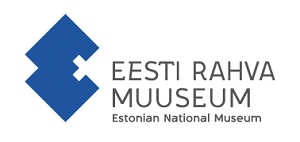 The Estonian National Museum (ENM) is a museum of cultural history. ENM’s role as a centre of ethnological research is to record, study and interpret culture as a way of life, taking into account its periodical, spatial and social diversity. The museum collects, displays and studies everyday life, culture as a way of living, bearing in mind its temporal, spatial and social diversity. ENM`s function as a contemporary cultural and educational centre is to show culture`s uniqueness and primeval power of creation.
The Estonian National Museum (ENM) is a museum of cultural history. ENM’s role as a centre of ethnological research is to record, study and interpret culture as a way of life, taking into account its periodical, spatial and social diversity. The museum collects, displays and studies everyday life, culture as a way of living, bearing in mind its temporal, spatial and social diversity. ENM`s function as a contemporary cultural and educational centre is to show culture`s uniqueness and primeval power of creation.
Since 2002, the museum has been involved with active digitalisation of its collections. Additionally to access from www.muis.ee, specific digital databases with contexts have been developed for providing additional information and thematically curated data for different subjects.
New models of collaboration and social inclusion have used to increase the active participation of people and communities in content creation in museums, which are related to museum’s research and exhibition projects.
Fondazione Sistema Toscana (IT)
 Fondazione Sistema Toscana (FST) is a no profit partecipative foundation created in 2005 by the Tuscany Region, with the aim to promote the Tuscan territorial system through integrated multimedia communication tools.
Fondazione Sistema Toscana (FST) is a no profit partecipative foundation created in 2005 by the Tuscany Region, with the aim to promote the Tuscan territorial system through integrated multimedia communication tools.
Among its goals, the FST has the mission of overcoming the digital divide and the cultural divide related to the themes of new media and new technologies.
FST carries out projects and initiatives in the field of web 2.0, digital communication, territorial marketing, online touristic promotion and conceives and delivers complex events; furthermore from 2010 FST develops and supports activities in the audiovideo and cinematographic sector, further to the incorporation of the Mediateca Regionale Toscana (the Tuscan Regional Multimedia Library).
This integration of diversified competences – project management, editorial production, cataloguing and archiving, content management – allowed the rationalization and the optimization of resources as well as the creation of a unique vision of the multimedia and digital technologies chain; it also become a fundamental condition to support in a more and more relevant way Institutions and Local Authorities in the elaboration of integrated policies in this field.
www.fondazionesistematoscana.it
Generalitat de Catalunya - Ministry of Culture (ES)
 The mission of the Ministry of Culture of the Autonomous Government of Catalonia is to preserve, promote and disseminate all forms of art and culture. The Culture Department is responsible for Government policy on creative industries, cultural heritage, libraries, museums and archives.
The mission of the Ministry of Culture of the Autonomous Government of Catalonia is to preserve, promote and disseminate all forms of art and culture. The Culture Department is responsible for Government policy on creative industries, cultural heritage, libraries, museums and archives.
GLAMURS Project
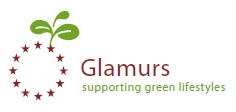 Funded by the European Commission’s 7th Research Framework Programme, GLAMURS started in January 2014 and will support policymakers, businesses, and citizens to make the right decisions on the way towards a sustainable future. GLAMURS will create communicative contexts on European and regional levels to investigate how such transitions are possible. Methods such as knowledge co-production, agent based modelling, macro and micro economic modelling along with the highly integrated view of the interdisciplinary GLAMURS team will help to find greater insights into the complex issues involved with sustainable development.
Funded by the European Commission’s 7th Research Framework Programme, GLAMURS started in January 2014 and will support policymakers, businesses, and citizens to make the right decisions on the way towards a sustainable future. GLAMURS will create communicative contexts on European and regional levels to investigate how such transitions are possible. Methods such as knowledge co-production, agent based modelling, macro and micro economic modelling along with the highly integrated view of the interdisciplinary GLAMURS team will help to find greater insights into the complex issues involved with sustainable development.
Between January 2014 and December 2016 GLAMURS will focus on six lifestyle domains: energy use, housing, work-leisure-balance, food-consumption, mobility and the consumption of manufactured products. Seven case studies will help understanding of how transition to sustainable lifestyles and green economies are possible. GLAMURS will point out how lifestyles of sustainability pioneers could inspire regional actors to change political settings so that transitions to sustainable regions will become reality. At the same time, the regional and case study analyses will provide an insight into the upscaling to transitions beyond the regional levels.
ISIA Roma Design (IT)
 ISIA (High Institute for Artistic Industries) Roma Design was founded in 1973 by Giulio Carlo Argan. It sprang from the need to train highly professional designers who would uphold the fine European intellectual and teaching tradition, from this it inherited and developed a methodological framework of excellence which it combined with Italians' great talent for creativity and innovation.
ISIA (High Institute for Artistic Industries) Roma Design was founded in 1973 by Giulio Carlo Argan. It sprang from the need to train highly professional designers who would uphold the fine European intellectual and teaching tradition, from this it inherited and developed a methodological framework of excellence which it combined with Italians' great talent for creativity and innovation.
ISIA Roma Design considers the act of designing as an essential moment in the dialectic exchange and interaction between the individual and society, in demand and sustainability, expression and reflection, considering Design as a configuration of excellence in every type of production of instruments and ideas.
After forty years of activity, based on research and experimentation, the school today can boast of a rich cultural heritage as well as scientific and teaching. It is therefore in a position to provide students with the tools to understand the deep socio-economic and technological changes taking place and to translate them into their creative work, qualifying the designer as both bearer of a renewed material culture and as interpreter of the immateriality of our times.
KU LEUVEN – CS Digital (BE)
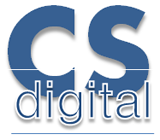 CS Digital, the Medialab of the Institute of Cultural Studies at Leuven University (KU Leuven), has 3 main areas of research: Digitization of Cultural Heritage, Online Publishing and ICT Education in the Humanities, Open and Distance Learning and E-Learning.
CS Digital, the Medialab of the Institute of Cultural Studies at Leuven University (KU Leuven), has 3 main areas of research: Digitization of Cultural Heritage, Online Publishing and ICT Education in the Humanities, Open and Distance Learning and E-Learning.
The centre is tightly connected to the MA in Cultural Studies at the Faculty of Arts in Leuven. The research focuses on developing online published data for Digital Humanities Research, in particular anything that relates to imaging, with a focus on photographic techniques. The Centre was involved in E-Ten and CIP projects involving image databases, in particular projects for Europeana such as EuropeanaPhotography and Europeana Space. With projects such as RICH, high-end digitization is pursued in collaboration with the KU Leuven Digital Lab, a state-of-the-art lab that works on reflective and multi-spectral imaging.
CS Digital has huge expertise in database design for Humanities projects, as well as metadata expertise in the field of photography, culture, arts, history and archaeology. In many projects, CS Digital is collaborating on the project communication strategies.
www.arts.kuleuven.be/cs/onderzoek/digital-culture-1/digital-culture
Italian Ministry of the Economic Development (MISE), Secretariat-General, Communications Section (IT)
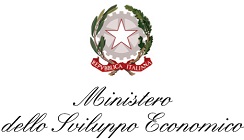 The MISE Secretariat-General - Communications section is responsible for a wide variety of policies for the development of telecommunications infrastructures and of ICT smart services and applications that constitute key factors for economic development.
The MISE Secretariat-General - Communications section is responsible for a wide variety of policies for the development of telecommunications infrastructures and of ICT smart services and applications that constitute key factors for economic development.
Major actions undertaken by include:
![]() supporting research and innovation activities encompassing different ICT sectors, also through projects in partnership with Universities and Research Institutions;
supporting research and innovation activities encompassing different ICT sectors, also through projects in partnership with Universities and Research Institutions;
![]() contributing to study groups within international organizations for the development of international standards enabling the interoperability of ICTs and the global communications of networks and devices;
contributing to study groups within international organizations for the development of international standards enabling the interoperability of ICTs and the global communications of networks and devices;
![]() carrying out statistical studies and analyses regarding the impact of ICTs on the economic and social growth at national level;
carrying out statistical studies and analyses regarding the impact of ICTs on the economic and social growth at national level;
![]() being responsible for policy and regulatory actions for ICT.
being responsible for policy and regulatory actions for ICT.
The Communications section of MISE is involved in the development of the National Broadband Plan to bridge the digital divide, in the planning of Italian strategy for the implementation of the Digital Agenda for Europe, and, at a broader level, in the development of all the e-Infrastructures driving economic development.
@MinSviluppo
Lehmann & Werder Museumsmedien GbR (DE)
![]() Museumsmedien is an SME focused on the development of web offers and multimedia solutions. The main emphasis is on the development of interactive media for the educational work in memorials, museums, exhibitions and other cultural institutions. The service Museumsmedien offers goes from consultancy to the final media-product. This includes software development, database development, screen design, hardware consultancy and staff training. Museumsmedien is specialized on the use of open source technology as e.g. MySQL, Typo3 or Ubuntu Linux.
Museumsmedien is an SME focused on the development of web offers and multimedia solutions. The main emphasis is on the development of interactive media for the educational work in memorials, museums, exhibitions and other cultural institutions. The service Museumsmedien offers goes from consultancy to the final media-product. This includes software development, database development, screen design, hardware consultancy and staff training. Museumsmedien is specialized on the use of open source technology as e.g. MySQL, Typo3 or Ubuntu Linux.
MEMOLA Project
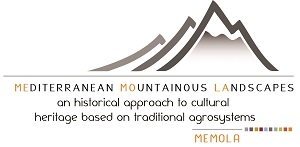 The implementation of MEMOLA project is framed under the analysis of Cultural Landscapes from late antiquity to modern times, evaluating the relationship between human societies and natural resources. The project aims to analyse, from an interdisciplinary perspective, the management of water and soil. The MEMOLA project counts with a total of ten partners and its central coordination is based at the University of Granada, Spain.
The implementation of MEMOLA project is framed under the analysis of Cultural Landscapes from late antiquity to modern times, evaluating the relationship between human societies and natural resources. The project aims to analyse, from an interdisciplinary perspective, the management of water and soil. The MEMOLA project counts with a total of ten partners and its central coordination is based at the University of Granada, Spain.
This project started in January, 2014 and will end in December, 2017. The project is an interdisciplinary approach to cultural landscapes of Mediterranean mountainous areas. The concept of cultural landscape used assumes that the logics governing landscapes and their structure are strongly conditioned by the need of ensuring the livelihood of rural communities over time. The study focuses on four areas: Sierra Nevada (Spain), Monti di Trapani (Italy), Colli Euganei (Italy) and Vjosa Valley (Albania).
MEMOLA (Mediterranean Mountanious Landscapes) has received funding from the European Union's Seventh Framework Programme for Research, Technological Development and Demonstration under Grant Agreement nº 613265.
www.facebook.com/memola.project
www.googleplus.com/MEMOLAFP7PROJECT
www.youtube.com/user/MEMOLAFP7project
Midt-Troms Museum (NO)
 Midt-Troms Museum has responsibility for a large region in Northern Norway that has international strategic-political significance, important natural resources in the sea and on the land, and a dynamic, optimistic population. The museum serves as an exhibit window for natural history and cultural history in the region. The museum works to keep traditional skills and knowledge alive and to create active arenas for bearers of traditional culture. The focus of Midt-Troms Museum is twofold: 1) man & nature through 10,000 years; 2) memories & traditions of Midt-Troms. Practice-led knowledge & skills.
Midt-Troms Museum has responsibility for a large region in Northern Norway that has international strategic-political significance, important natural resources in the sea and on the land, and a dynamic, optimistic population. The museum serves as an exhibit window for natural history and cultural history in the region. The museum works to keep traditional skills and knowledge alive and to create active arenas for bearers of traditional culture. The focus of Midt-Troms Museum is twofold: 1) man & nature through 10,000 years; 2) memories & traditions of Midt-Troms. Practice-led knowledge & skills.
Midt-Troms includes 6 theme museums (SÁŽŽA Senja Nature & History Center; Finnsnes City Museum; Children’s Museum; Fjord Museum / Wetland Center; TRADsenter -Traditional skills & crafts center; Troms Museum of Defense) and 11 open air museums and local museums (Kramvigbrygga, Fossmotunet, Kongsvoldtunet, Strømsør Mountain Farm, Bardu Bygdetun, Kastnes Bygdetun, Lenvik Museum, Aursfjordsaga, Skrolsvik fishing station, Hofsøy Bygdemuseum, Kaperdalen Samemuseum).
Municipality of Anagni (IT)
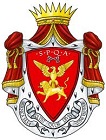 Anagni is situated by Frosinone in the Lazio region, central Italy; it is popular for having been, in the medieval age, the city of the Popes. After hosting the papal court between the XI and XIV centuries, Anagni gave birth to Innocenzo III, Gregorio IX, Alessandro IV and Bonifacio VIII.
Anagni is situated by Frosinone in the Lazio region, central Italy; it is popular for having been, in the medieval age, the city of the Popes. After hosting the papal court between the XI and XIV centuries, Anagni gave birth to Innocenzo III, Gregorio IX, Alessandro IV and Bonifacio VIII.
The famous Cathedral (XII Century) - with the precious frescoes of its renowned crypt - Bonifacio VIII’s palace (formerly Conti palace), the Town Hall, Casa Barnekow and S.Pietro in Vineis are the remains of the medieval age. The massive Servian walls, the Arcazzi and Villamagna date back instead to the Roman period.
To later periods (1700 and onwards) belong the noble palaces overlooking the main street and the baroque churches.
Today Anagni is one of the most important cultural and business centre of Italy.
National Academic Library Information System (BG)
 The National Academic Library and Information System Foundation (NALIS Foundation) was established in 2009, Founded by the Central Library of BAS (CL-BAS), the Sofia University “St. Kliment Ohridski” (SU) and the American University in Bulgaria (AUB). The libraries of these institutions take the active part in the NALIS Project – apart from the CL-BAS, these are the Sofia University Library (SUL) and the AUB Library (AUBL).
The National Academic Library and Information System Foundation (NALIS Foundation) was established in 2009, Founded by the Central Library of BAS (CL-BAS), the Sofia University “St. Kliment Ohridski” (SU) and the American University in Bulgaria (AUB). The libraries of these institutions take the active part in the NALIS Project – apart from the CL-BAS, these are the Sofia University Library (SUL) and the AUB Library (AUBL).
The NALIS Project stimulates the integration of the Bulgarian academic library systems. Its main purpose is to create an online union catalog of the university and research libraries in Bulgaria, which, through a web portal, will allow integrated searching through the internet in these libraries, and electronic access to the bibliographical information about their paper funds, electronic resources and information services.
Later the scope of activities expanded. One of the new areas is providing infrastructure and expertise for digitization projects of the participating libraries.
The NALIS Foundation has also directly participated in cultural heritage digitization projects.
NET7 (IT)
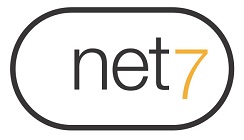 Net7 is a SME based in Pisa, Italy. Its core business is development and consultancy on Web and semantic web technologies, including digital humanities and cultural heritage. Net7 had been giving applied research activities a central role, participating in several EU projects (eContentPlus Discovery, FP6 Websicola, FP7 SEMLIB, ICT-PSP Agora, ICT- PSP DM2E, ICT-PSP Fusepool, ICT-PSP Europeana Sounds, SME-2013-3 StoM) and collaborating with academic institutions, among which the COST action A32 (Open Scholarly Communities on the Web). From such projects Net7 developed an extensive know-how in the area of semantic web digital libraries and annotation tools.
Net7 is a SME based in Pisa, Italy. Its core business is development and consultancy on Web and semantic web technologies, including digital humanities and cultural heritage. Net7 had been giving applied research activities a central role, participating in several EU projects (eContentPlus Discovery, FP6 Websicola, FP7 SEMLIB, ICT-PSP Agora, ICT- PSP DM2E, ICT-PSP Fusepool, ICT-PSP Europeana Sounds, SME-2013-3 StoM) and collaborating with academic institutions, among which the COST action A32 (Open Scholarly Communities on the Web). From such projects Net7 developed an extensive know-how in the area of semantic web digital libraries and annotation tools.
In 2008 NET7 has been selected among the 50 most innovative SMEs in Europe by the French Presidency of the EU and presented its work at the Research for SMEs – Innovation in Motion – conference. In 2010 NET7 launched the Muruca project, a set of open source innovative tools for digital libraries.
Omer Devrim Aksoyak from Mimar Sinan Fine Arts University (TK)
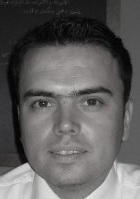 Omer Devrim Aksoyak works as a research assistant at Mimar Sinan Fine Arts University / Istanbul, Turkey. His PhD thesis focuses on proposing a framework to analyse and visualise the management of the development of historical settlements, based on the concept of “Historical Urban Landscape” that was announced by UNESCO to protect the historical areas with a holistic approach, not only with their physical assets but also with all their culturally and socially valuable elements.
Omer Devrim Aksoyak works as a research assistant at Mimar Sinan Fine Arts University / Istanbul, Turkey. His PhD thesis focuses on proposing a framework to analyse and visualise the management of the development of historical settlements, based on the concept of “Historical Urban Landscape” that was announced by UNESCO to protect the historical areas with a holistic approach, not only with their physical assets but also with all their culturally and socially valuable elements.
Omer Devrim Aksoyak has been working for the Center of Urban Research and Application (SUAM) at the Department of City and Regional Planning at the Mimar Sinan Fine Arts University since February 2011, where he took part in several research projects funded by the Government of Turkey and by the NGO’s, focusing on the protection and development of historical cities and ancient ruins. His main responsibilities are: preparing digital urban analyses for the reports of area management and urban development plans; preparing and presenting urban design proposals to the local authorities and managing teams of NGO’s; assisting the director of the Center in the management of the communication with partners and shareholders of the projects; organising presentations and meetings with the local authorities and local communities about the development of the projects; organising the digital data archive of the Center; and editing books or the reports of the Center to be published.
Prof. Carla Fernandes from Universidade Nova de Lisboa (PT)
 Carla Montez Fernandes: Ph.D in Linguistics. Associate Professor at Instituto Politécnico de Leiria until 2007, currently a Senior Researcher at FCSH - Universidade Nova de Lisboa.
Carla Montez Fernandes: Ph.D in Linguistics. Associate Professor at Instituto Politécnico de Leiria until 2007, currently a Senior Researcher at FCSH - Universidade Nova de Lisboa.
Recently awarded a European Research Council Grant for her interdisciplinary project "BlackBox - A collaborative platform to document performance composition: from conceptual structures in the backstage to customisable visualisations in the front-end", to run at FCSH-UNL from 2014 until 2019 under her direction.
Principal Investigator of the "TKB project" (A Transmedia Knowledge-Base for performing arts) funded by the national Foundation for Science and Technology in Portugal. Research collaborator in international projects at the crossings of Arts&Science, such as Inside Movement Knowledge or LABO 21.
Her research focus is in the intersection of Cognitive Linguistics and the Performing Arts, particularly concerning the annotation of multimodal corpora in dynamic and collaborative digital archives for the analysis/documentation of contemporary dance.
Supervisor of MA dissertations and Ph.D thesis in Cognitive Linguistics and Multimodal Communication, Lexicology&Terminology and Performing Arts&Digital Media at Universidade Nova de Lisboa, FE-Universidade do Porto, Faculdade de Letras da Universidade de Lisboa and Universidade Federal da Baía, Brazil.
RMIT Europe
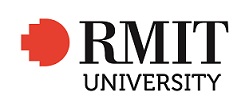 Based in the vibrant city of Barcelona, Spain, RMIT Europe is focused on extending RMIT’s global reach across research, industry and student mobility. RMIT is one of Australia's original tertiary institutions and a global university of technology, design and enterprise. Its European hub, which was established in 2013, includes a team of researchers and professional staff focused on delivering research impact and global student experiences.
Based in the vibrant city of Barcelona, Spain, RMIT Europe is focused on extending RMIT’s global reach across research, industry and student mobility. RMIT is one of Australia's original tertiary institutions and a global university of technology, design and enterprise. Its European hub, which was established in 2013, includes a team of researchers and professional staff focused on delivering research impact and global student experiences.
The RMIT Europe team match RMIT’s research strengths and priorities with European funding and collaboration opportunities. Fostering global mobility for RMIT students is also at its core, whether it is hosting PhD students at the European hub in Barcelona for fieldwork or facilitating study tours and connecting students with study programmes and industry across Europe.
UNESCO Chair in ICT (CH)
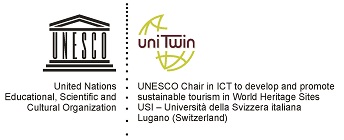 The UNESCO Chair in ICT to develop and promote sustainable tourism in the World Heritage Sites, established in 2013 at the Università della Svizzera italiana (USI Lugano, Switzerland), is committed to perform extensive research and teaching on how eTourism technologies can be effectively exploited to support sustainable tourism at the World Heritage Sites, with a special emphasis on the southern hemisphere. Its scope touches and overlaps on the following fields: eTourism, eLearning, and ICT4D (ICT for Development).
The UNESCO Chair in ICT to develop and promote sustainable tourism in the World Heritage Sites, established in 2013 at the Università della Svizzera italiana (USI Lugano, Switzerland), is committed to perform extensive research and teaching on how eTourism technologies can be effectively exploited to support sustainable tourism at the World Heritage Sites, with a special emphasis on the southern hemisphere. Its scope touches and overlaps on the following fields: eTourism, eLearning, and ICT4D (ICT for Development).
Universitat Internacional de Catalunya (ES)
 The Universitat Internacional de Catalunya offers a highly personalised university education with a strong vocational element. The UIC has faculties, schools and institutes in various areas of knowledge where university studies are taught. The Faculty of Humanities transmit a type of education which encourages both personal growth and professional development in students. This discipline teaches us to live a fuller life, because it ensures that we inherit human experiences from other eras and cultures which enrich our own lives, as well as our search for meaning and happiness. Within our historical context of change and transformation, the Humanities as a discipline is necessary because it provides us with tools to interpret today's world and to achieve intercultural dialogue. Finally, there is a plethora of professional opportunities available in the cultural sector, which means that it is highly important to receive intensive and versatile education such as that provided by the Humanities at UIC.
The Universitat Internacional de Catalunya offers a highly personalised university education with a strong vocational element. The UIC has faculties, schools and institutes in various areas of knowledge where university studies are taught. The Faculty of Humanities transmit a type of education which encourages both personal growth and professional development in students. This discipline teaches us to live a fuller life, because it ensures that we inherit human experiences from other eras and cultures which enrich our own lives, as well as our search for meaning and happiness. Within our historical context of change and transformation, the Humanities as a discipline is necessary because it provides us with tools to interpret today's world and to achieve intercultural dialogue. Finally, there is a plethora of professional opportunities available in the cultural sector, which means that it is highly important to receive intensive and versatile education such as that provided by the Humanities at UIC.
University of Bologna, Department of Architecture (IT)
 Within University of Bologna (UNIBO), known as the oldest University of the western world, the young Department of Architecture is involved in programmes related to sustainable design, urban renewal, building retrofitting and restoration. Different levels of the built environment are the main focus of its research activities, from the urban setting to the definition of the building envelope and the related technological components, from advanced design to Living and Cultural Heritage.
Within University of Bologna (UNIBO), known as the oldest University of the western world, the young Department of Architecture is involved in programmes related to sustainable design, urban renewal, building retrofitting and restoration. Different levels of the built environment are the main focus of its research activities, from the urban setting to the definition of the building envelope and the related technological components, from advanced design to Living and Cultural Heritage.
The involved research team is the Architectural representation and computer-graphics unit, whose expertise concerns: creation of 3D models applied to CH; development of Cognitive-Information Systems applied to CH; effective methodological features for the achievement of database informative systems based on 3D models for CH (digital library), able to provide a uniform framework for scientific visualization, actual integration and web-based presentation of space-time heterogeneous data sets; implementation of cataloguing activities and historical-critical analysis of architectural works and their conversion into multimedia atlases placed on the web; development of methodologies and technological applications for the production of multimedia authoring and multi-platform capable to support enterprise communication and social and territorial communication functional to the dissemination and use of cultural contents; development of technological applications capable to support complex productive processes, able to combine design, creativity and design culture.
Official Media Partner: Digital Meets Culture.
Designed and powered by: Promoter SRL.
